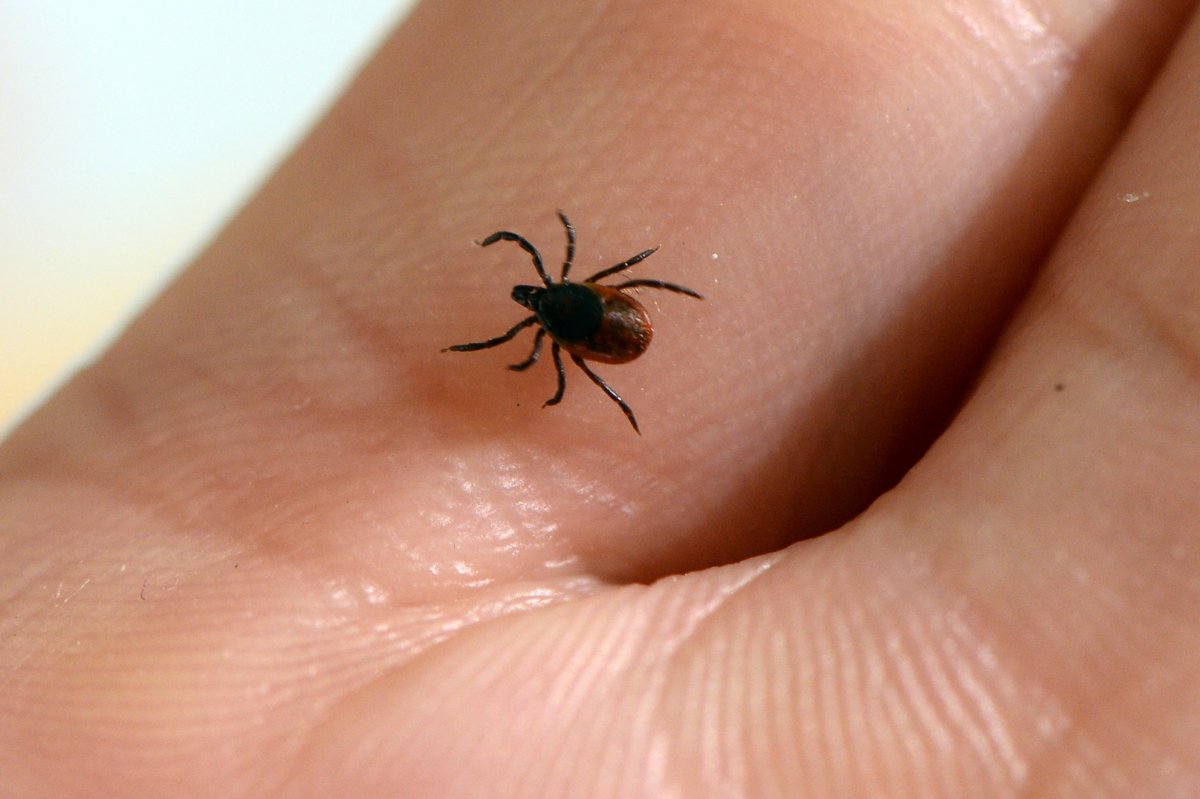A major step in battling Lyme disease and other dangerous tick-borne viruses may have been taken as researchers announced they have developed a vaccine against the ticks themselves.
Rather than combatting the effects of the bacteria or microbe that causes Lyme disease, the vaccine targets the microbiota of the tick, according to a paper published in the journal Microbiota on Monday.
The research by the French National Research Institute for Agriculture, Food and the Environment, in collaboration with the National Social Security Administration and the National Veterinary School of Alfort, found a way to use a harmless bacteria as a sort of Trojan horse to stimulate the production of antibodies that interact with the microbiota of the tick, preventing the tick from being colonized by the bacteria that cause Lyme disease.
Lyme disease is a condition caused by the Borrelia bacteria, including Borrelia burgdorferi, Borrelia mayonii and Borrelia afzelii, and is usually spread by bites from ticks. In France, where the research was carried out, up to 20 percent of ticks carry Lyme disease, and since 2017, more than 72,000 tick bites have been reported to French health authority Santé publique France.

In the U.S, about 30,000 cases of Lyme disease are reported to the Centers for Disease Control and Prevention by state health departments, but the number is thought to be much higher in reality, possibly more than 400,000.
In the study, the authors describe how the new vaccine prevents the ticks from being a home to the disease-causing bacteria. Mice that were injected with the vaccine were found to cause their ticks to be protected against colonization by Borrelia bacteria but did not stop the mouse from experiencing symptoms of the disease.
"These findings suggest that Borrelia is highly sensitive to tick microbiota perturbations and that departure from the modulation induced by the pathogen in the vector microbiota pose a high cost to the spirochete," the authors wrote in the paper.
"Network analysis emerges as a suitable tool to identify emergent properties of the vector microbiota associated with infection-refractory states. Anti-microbiota vaccines can be used as a tool for microbiota perturbation and control of important vector-borne pathogens."
Ticks transmit disease via their bites, allowing bacteria and other pathogens to enter the bloodstream as they inject their feeding tubes.
"Ticks are an important vector of disease due to various factors," Alejandro Cabezas-Cruz, a researcher specializing in parasitic immunology and co-author of the study, told French news outlet Libération.
"First, their need to feed on blood and their ability to adapt to different environments. Additionally, ticks can associate and transmit various pathogens through their blood meals, making them effective vectors. Another important factor that makes ticks good vectors is their complex saliva, which assists pathogens in their transmission. Finally, they have a longer lifespan than other vectors, such as mosquitoes. Some species of ticks can live for several years."
Other infections transmitted by ticks include tick-borne encephalitis, babesiosis, powassan virus disease, rickettsiosis and Crimean-Congo hemorrhagic fever, among many others.
It is hoped by the researchers to be a one-two punch of discovery, both in the combatting of Lyme disease and other tick-borne infections, and as a whole new form of vaccine.

"By affecting the development of pathogens in vectors, this vaccine could help reduce vector competence and thus reduce the transmission of diseases, such as Lyme," Cabezas-Cruz said. "Although the research, regulation and approval process can take about 10 years for humans, it is possible that it will be applied more quickly in animals, especially in livestock. This promising approach offers new perspectives for the prevention of vector-borne diseases."
They also hope that the vaccine could be used to treat diseases passed on by other vectors, like mosquitoes.
"These antimicrobiota vaccines are interesting for other pathogens because they specifically target the vector microbiota," Cabezas-Cruz said. "As the microbiota is essential for many vector-borne pathogens, this approach could be used to target a wide range of diseases, whether caused by viruses, parasites or bacteria.
"For example, for malaria, studies have shown that vaccinating birds with bacteria from the mosquito microbiota resulted in a strong reduction in the parasite Plasmodium sp. in mosquitoes, potentially limiting disease transmission."
In the meantime, a vaccine against the bacteria that cause Lyme disease is also in the works, though it may not be ready for several years. There was one vaccine for the disease available in the 1990s, but it was pulled after low consumer demand.
Do you have a tip on a science story that Newsweek should be covering? Do you have a question about Lyme disease? Let us know via science@newsweek.com.
Uncommon Knowledge
Newsweek is committed to challenging conventional wisdom and finding connections in the search for common ground.
Newsweek is committed to challenging conventional wisdom and finding connections in the search for common ground.
About the writer
Jess Thomson is a Newsweek Science Reporter based in London UK. Her focus is reporting on science, technology and healthcare. ... Read more
To read how Newsweek uses AI as a newsroom tool, Click here.






